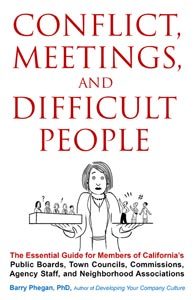Dying well takes planning. If you don’t plan you may get what you don’t want.
 A Good Death
A Good Death
In 2017 my closest and dearest friend died. He was 94. In his last 18 months, he had progressive dementia. For many years before that, we had both discussed dying and how we would help each other if needed. We understood the three main choices were; the Oregon death pills (although self-assisted death is now OK on California), the helium tank and plastic bag, or simply not eating and drinking.
My friend’s dementia had affected his walking, swallowing, sight, memory, stability, and self-care. Two weeks before he died, he was in the hospital with yet another bout of swallowing-related pneumonia. He was delirious. His daughter, son-in-law and I met with the hospital palliative care team. They explained the situation and we all agreed it was best that he come home and let nature take its course. A week later he was home, and because of antibiotics, not delirious.
He wanted to get out of bed. His favorite activity for most of his life was chatting with friends over coffee, mostly at Peet’s on 4th Street in Berkeley. Though his recent dementia had limited this, he still longed for that good life. For him, relationships and good conversation were everything.
His daughter tried explaining that he was now physically unable to get out of bed, but my friend insisted. He pulled back the covers, attempted to move, then realized he couldn’t. I vividly remember the startled, almost unbelieving look on his face as he recognized the reality of his situation — this was the end.
Saying nothing, he closed his eyes, stopped eating and drinking, and died four days later. I believed his was an intentional death, ending his life as he wanted, in control, surrounded by family, friends, and music.
A Not So Good Death
When a spouse or parent develops dementia, it’s difficult for the family to let go of the person they knew. There are social and cultural pressures to keep a body alive after the mind is gone. When my wife entered a dementia care-home there was another person there who was completely demented — gape-mouthed, drooling and blankly staring. Three times a day her body was hoisted out of bed with a crane device, lowered onto a horizontal wheelchair, brought to the dining room and hand-fed a mush. I asked the care-home owner why this patient was still “alive”. She said the patient’s family couldn’t agree on letting her go. I was shocked and saddened. If that woman could see herself in that grim future state, a hand-fed mindless body, there is no way she would have agreed to it.
Write Down What You Want
To help ensure I get what I want, I wrote some specific clauses into my End-Of-Life Directive. While I plan on closing up my own shop in the early stages if I get dementia (my father died at 60 of dementia and my elder brother was in a dementia care home for five years before he died), I’m aware that even the best-laid plans can derail — “Man plans, God laughs”.
One clause in my directive states that if I have dementia and I’m unable to feed myself, that I do not want to be hand-fed — even if I open my mouth when a spoonful of food is brought towards it. I wrote that particular clause because some years ago I read of a judge in a conservative, religious, southern state who’d ruled that the opening of the mouth was a sign that the person wanted to continue living, even though that person’s end-of-life directive specified no-special-treatments. Except for just one person (the one who took the issue to court), the family supported that directive, but the judge sided with the plaintiff.
Working Around the Medical and Care-Home Culture
The medical profession is uncomfortable with death. The health care culture wants to keep life going — no matter what. Similarly, it’s almost impossible for care homes to allow natural death, for example, to stop feeding somebody who is ready to die. In our litigious and religious American culture, I understand that. The potential financial liability is simply too great.
The best guarantee of a good death (is that an oxymoron?) is to have all your family understand and fully agree with your written desires. You might need to have your last days at home, where you and your family have control, as my best friend and his family did. If I’m ever in a similar state, I’d like to finish my life that way.
I’m not looking forward to concluding this amazing experience we call life, but when the time comes, I hope I’m prepared.
I welcome your comments or suggestions.
Thank you for visiting,
me, Barry Phegan
Comments & Suggestions




